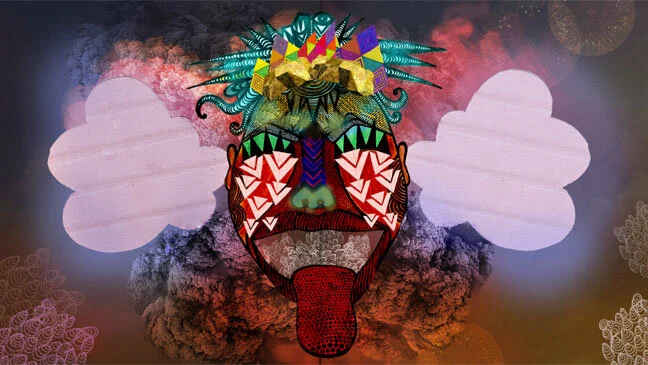The importance of Black Joy on film
2021 is already set to be an improvement on 2020, a year in which we were constantly subjected to a barrage of images on screen depicting trauma and violence against Black flesh. This year should be the year in which we set our own narrative and reposition our gaze on our own experiences on our own terms.
Hollywood’s depiction of Black people is often problematic – films met with acclaim, Gone With the Wind, Django Unchained, The Help and 12 Years a Slave are beset with troubling articulations of struggle and trauma which is a narrow depiction of the Black experience for many, and is also part of the assault on Black consciousness. It is interesting to see that Black expression across literature, music, theatre and dance are not beholden to the same continual obsessions with Black tragic lives stories.
Below is a selection of 4 essential films that serve as an antidote to the trauma narratives that celebrate what we know to be true: That Black joy, creativity, reinvention is at the heart of who we are. This article is written assuming and hoping that the readers have already seen the Black joy masterpieces Black Panther, Black is King, Coming to America and Into the Spiderverse and provide some lesser known, wacky, funny and heartwarming films to devour.
Symbiopsychotaxiplasm: Take One
How do you describe the beautiful chaos that is Symbiopsychotaxiplasm: Take One? Part meta-documentary, part social experiment, director William Greaves interogrates the process of film-making and examines the social interplays between cast, crew, and the world at large. Greaves, plays a fictionalised version of himself, as director of the marital melodrama Over the Cliff. He tells one camera to watch the actors, the second camera to film the first crew, and the third to document the surroundings, Central Park 1968. The William Greaves portrayed onscreen is charismatic but incompetent, luring the crew to stage a coup, and inadvertently make the film themselves. Symbio does not overtly discuss the racial dynamics, it is covertly radical act that Greaves is the nucleus of this social experiment, and through his role as ‘editor’ he affords the viewer to witness a Black figure as the singular source of power, and it is a joy to see him wielding this it with glee.
Black Orpheus
Whilst it may appear to be slightly exoticised for a modern audience, especially for Barack Obama, Marcel Camus’s adaptation of the Greek myth of Orpheus and Eurydice, set against the backdrop of the Rio de Janeiro carnival is a sumptuous and marvelous delight. Featuring an almost all Black cast, the bossa nova soundtrack and the energetic dance numbers are juxtaposed against the towering favelas with the bustling city below and although it is particularly of it’s time (the gaze could be seen as tourististic) the timelessness of the central story, blended with the Brazillian symbolism of the carnival sits somewhere between dream-like fantasy and melodrama, and was the inspiration to Donald Glover and Rihanna film, Guava Island.
An Oversimplification of Her Beauty
Terrence Nance’s dazzling debut is the second oddity on this list, and shares the meta-verite style of Symbiopsychotaxiplasm, where Nance plays a heighted version of himself, turns his gaze inwards to explore love and all of its complexities after being stood up by a mystery woman. Nance blends animation, archival footage and confessionals to create a psychedelic portrait of a young man who yearns to love and be loved, but doesn’t quite understand what that means. It is a colourful, ambitious and inventive take on an unrequited love story, and beneath the kaleidoscopic imagery and frenetic energy, is an earnest and relatable film about how romantic love can feel intangible.
Kiki
This film has been compared to the cult classic Paris is Burning, but has more commonalities Marlon Riggs’s seminal essay film Tongues Untied. Kiki is an intimate portrait of the still thriving ballroom scene in New York City and highlights the necessity of a place for artistic and sexual freedom and expression. In this bold and colourful documentary, the Kiki ballrooms are systems of support, education and most importantly, activism. The dancers here are as concerned with dismantling the patriarchy as they are with the glamour of the ballroom scene. It is a testament to how the Kiki scene emboldens its participants with the tools to face those who discriminate against them for their gender, sexual and racial identity, and recogonise their own beauty and individuality.
The Incredible Jessica James
Jessica Williams shines in The Incredible Jessica James. Williams, one of the co-hosts of the acclaimed podcast 2 Dope Queens, steps in front of the camera to deliver a star-making performance. More conventional in its storytelling than the other breakup flick in this list, it follows familiar beats as we follow Ms James, a down on her luck playwright in Brooklyn trying to mend her broken heart and actualise her dreams in the big city. However predictable the plot may be, dating app disasters, theatre rejections, and an unlikely romantic interest all pop up at some point, Williams plays her with such warmth and wit it is a joy to watch her grow into a space of happiness and contentment, and is the perfect tonic for the doom and gloom of the past year.





